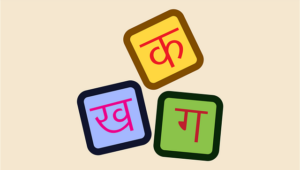Globalize University Regulations: Accurate Translation for International Students
In a globalized education setting, accurately translating University Regulations and Policies is crucial for fairness and compliance across diverse student bodies. Professional translators skilled in higher education are vital to ensure cultural sens…….

In a globalized education setting, accurately translating University Regulations and Policies is crucial for fairness and compliance across diverse student bodies. Professional translators skilled in higher education are vital to ensure cultural sensitivity and precision. This involves understanding academic freedom variations, local laws, and educational frameworks, using specialized terminology management systems. Quality control measures eliminate errors, fostering trust. Certified translations steer clear of legal traps, enabling international students to navigate campus life seamlessly. Future trends include AI-driven tools for enhanced efficiency and accessibility, democratizing education worldwide.
In today’s globalized academic landscape, the certified translation of university regulations and policies is more critical than ever. As institutions expand their reach internationally, ensuring clear communication across borders becomes a complex challenge. This article explores the intricacies of translating university documents for global use, covering understanding international requirements, mastering technical terms, cultural sensitivity, legal implications, and student accessibility. Discover best practices, emerging trends, and the vital role accurate translation plays in facilitating diverse educational environments.
- Understanding Global University Requirements
- The Importance of Accurate Translation
- Challenges in Translating Regulatory Text
- Best Practices for Policy Localization
- Ensuring Cultural Relevance in Education
- Technical Terms and Their Precision
- Quality Assurance in Educational Documentation
- Legal Implications: Compliance Across Borders
- Student Experience: Global Access to Rules
- Future Trends in University Translation Services
Understanding Global University Requirements
In today’s globalized educational landscape, understanding and adhering to university regulations and policies across borders is more critical than ever. International students and institutions alike must navigate a complex web of requirements, ensuring compliance with local laws and academic standards worldwide. This involves meticulous attention to detail when translating University Regulations and Policies for seamless international adoption.
Every country has its own set of educational frameworks and cultural nuances that influence institutional policies. Accurate translation goes beyond mere word-for-word substitution; it requires a deep understanding of these nuances to convey the intended meaning effectively. For instance, academic freedom, a cornerstone in many university regulations, might be interpreted and regulated differently across jurisdictions. Professional translators with expertise in higher education must therefore capture these subtleties to ensure global University Regulations and Policies are both precise and culturally sensitive.
The Importance of Accurate Translation
The accurate translation of university regulations and policies is paramount for ensuring global understanding and compliance. These documents form the backbone of academic institutions, outlining expectations, procedures, and rights for students, faculty, and staff alike. When translated with precision, they empower non-native speakers to navigate their educational or professional environments seamlessly.
In a globalized world, where higher education attracts diverse student bodies and international collaborations are increasingly common, clear communication is vital. Inaccurate translations could lead to misunderstandings, unfair treatment, or even legal complications. Therefore, professional translation services specializing in university regulations and policies are essential to bridge the language gap, fostering inclusivity and consistency across borders.
Challenges in Translating Regulatory Text
Translating university regulations and policies for a global audience presents unique challenges. These texts are often complex, containing specialized terminology and intricate legal language that must be accurately conveyed in another language while maintaining their original intent and structure. The process involves more than just word-for-word translation; it requires cultural adaptation to ensure accessibility and understanding for diverse student bodies and faculty members from various linguistic backgrounds.
Additionally, regulatory documents are subject to constant revision and updates, making it crucial to have a dynamic translation approach. Keeping up with these changes while maintaining consistency across different language versions is a significant hurdle. Professional translators must stay abreast of the latest amendments, ensuring that global users access the most current policies and regulations without losing clarity or precision in the translation.
Best Practices for Policy Localization
When localizing university regulations and policies for global audiences, best practices involve more than just word-for-word translation. It’s crucial to understand cultural nuances and academic conventions in each target language. This ensures that the translated documents not only convey the same information but also resonate with readers from diverse backgrounds.
Professional translators should consult with subject matter experts from both the university and the target regions. This collaborative approach guarantees accuracy and ensures that the localized policies align with local laws, customs, and educational practices. Additionally, using terminology management systems and consistent formatting enhances readability and reduces ambiguity, making the translated University Regulations and Policies accessible and credible worldwide.
Ensuring Cultural Relevance in Education
In today’s globalized educational landscape, ensuring cultural relevance in university regulations and policies is paramount. Going beyond simple translation involves a deep understanding of local customs, values, and legal frameworks to convey institutional guidelines that resonate with diverse student bodies. This nuanced approach caters to students from various cultural backgrounds, fostering an inclusive learning environment.
By integrating culturally sensitive language and incorporating relevant examples, university regulations can be adapted to reflect the specific needs and expectations of international students. Such adaptations not only facilitate better comprehension but also encourage adherence to academic standards and institutional values. Ultimately, this holistic approach to translation ensures that educational policies are accessible, meaningful, and effective across cultural boundaries.
Technical Terms and Their Precision
When translating university regulations and policies for a global audience, precision in technical terms is paramount. These documents often contain specialized terminology that requires expert knowledge to convey accurately across different languages. A mistranslation could lead to misunderstandings or even legal implications, especially when dealing with academic standards, research ethics, or student rights.
Therefore, professional translators must have a deep understanding of both the source and target languages, as well as the specific context of higher education. They employ glossaries and style guides tailored to academic writing to ensure consistency in technical terms throughout the translation process. This meticulous approach guarantees that University Regulations and Policies are communicated with clarity and precision, fostering equitable access to educational standards worldwide.
Quality Assurance in Educational Documentation
Ensuring quality assurance in educational documentation, especially for university regulations and policies meant for global audiences, is paramount. This involves rigorous processes to guarantee accuracy and clarity across diverse languages. Professional translation services employ native-speaking linguists who not only grasp the legal nuances but also understand cultural contexts, ensuring that regulatory documents maintain their intended meaning and effect worldwide.
Standardized quality control measures, including proofreading, editing, and back-translation, are integral to this process. These steps help identify and rectify any inconsistencies or errors, enhancing the overall precision of the translated materials. The result is a seamless communication of university policies, fostering trust among global students, faculty, and stakeholders.
Legal Implications: Compliance Across Borders
When it comes to university regulations and policies, ensuring compliance across borders is a complex task due to varying legal frameworks and cultural nuances. A certified translation goes beyond mere word-for-word rendering; it requires an understanding of the destination country’s legal system and regulatory environment. This is crucial for international students, faculty, and institutions looking to avoid potential legal pitfalls.
For instance, what constitutes acceptable academic conduct in one country might differ significantly from another. A precise translation must convey these subtleties accurately to prevent misunderstandings and ensure fairness. Moreover, some policies may have direct implications on matters of copyright, data privacy, or even intellectual property rights, necessitating a deep knowledge of local laws.
Student Experience: Global Access to Rules
Global access to university regulations and policies is transforming the student experience, breaking down geographical barriers and fostering a more inclusive academic environment. With the rise of international education, students from diverse backgrounds now have the opportunity to study abroad, requiring clear and accurate translation of university rules and guidelines in their native languages.
This shift ensures that every student, regardless of their origin, can navigate campus life with ease, understand expectations, and fully participate in academic and extracurricular activities. Certified translation services play a vital role in this process, guaranteeing the precision and cultural sensitivity needed to convey complex University Regulations and Policies effectively across languages.
Future Trends in University Translation Services
The future of university translation services is poised for significant transformation, driven by technological advancements and a growing globalized educational landscape. Artificial Intelligence (AI) and machine translation tools are expected to play a pivotal role in enhancing efficiency and accessibility. These technologies can swiftly translate large volumes of University Regulations and Policies, ensuring consistency across diverse languages. This trend promises to democratize access to education worldwide, enabling non-native speakers to navigate academic requirements effortlessly.
Moreover, the integration of advanced translation platforms will facilitate dynamic updates and real-time translations, keeping up with the ever-changing nature of university policies. Such innovations not only streamline processes but also foster a more inclusive learning environment, where students from different cultural backgrounds can contribute their unique perspectives. This shift towards digital solutions is set to redefine traditional translation practices in higher education.
The globalisation of education demands precise and culturally relevant translations of university regulations and policies. Navigating the complexities of regulatory text is essential for ensuring student access to quality learning experiences worldwide. Adhering to best practices in localisation, cultural sensitivity, and technical accuracy fosters trust and compliance across borders. As educational institutions expand their reach, investment in professional translation services becomes a cornerstone for successful internationalisation, creating a symphony of accessible and understandable university regulations for a diverse global community.






